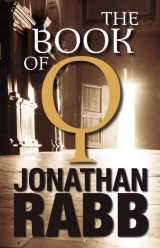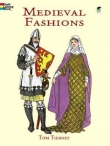
Текст книги "The Book of Q"
Автор книги: Jonathan Rabb
Жанр:
Триллеры
сообщить о нарушении
Текущая страница: 15 (всего у книги 28 страниц)
It was here that Ribadeneyra offered his truest indication of faith. Or perhaps the only rationale for his own inaction:
But it is for Mani alone to decide when that time shall come. He alone shall know when the “Hodoporia” shall be revealed.
Now certain he was acting in the best interests of all Manichaeans, Ribadeneyra had returned to Istanbul, reinterred the scroll (for the one “worthy enough to accept the task”), and concocted another bit of gnosis, so that, “centuries from now,” another might discover it-Ruini, as it turned out-and “unmask the path to the Holy Truth.” Mani would keep the scroll well hidden; Ribadeneyra would handle the “Hodoporia.”
Pearse turned to the next page for the first installment of the monk’s “hidden knowledge.”
There is a town on the Drina….
The Drina River. Bosnia. Pearse’s eyes shot to the top of the page. The small triangle.
And he remembered.
Half an hour from the Bulgarian border, he’d crossed into Macedonia, now three hours ago, each passing mile a nod to the Holy Mother’s continuing generosity. Or perhaps to the ancient animosities between the Greeks and their neighbors to the north. Whichever it was, he was counting on that lack of communication to delay any alerts out of Athos. Still, he couldn’t expect to sustain his run of good luck at the border posts. Ill feelings notwithstanding, there’d been too much time since his hasty departure from the mountain. The collar would soon lose its charm.
Unless, of course, the border he intended to cross lay in shambles. With one eye on the map, the other on the road, he knew he had only one choice: Kosovo. Over a year ago, the refugees had been pouring out, thousands of them crammed into camps littered along the Albanian and Macedonian borders. But there had been too many of them, thousands more shipped off to Turkey, Armenia, Greece-wherever friends or relatives had been willing to house them. Now, those same refugees wanted back in. Trouble was, there was no place to put them, entire villages buried under rubble. More than that, the Serbs weren’t exactly encouraging them to reclaim their homes; mines were once again springing up all over the place. Still, the refugees came. And with them, a rebirth of the camps. Not that the rest of the world was taking much notice. That was last year’s news. The horror of the camps, however, remained the same.
Callous as it might sound, Pearse knew that a priest on a relief mission could easily get lost in one of them. Or at least be deemed lunatic enough to be let through without too many questions. He was banking on the latter. More to the point, Kosovo would be the easiest place to disappear once Nikotheos’s call went through to Rome. Mention of the “Hodoporia” would no doubt kick the Austrian and his cronies into high gear. Even if they should find the car-which he planned to abandon a few miles from the border-the chances of locating him within the mayhem were slim at best. Somehow, he would find his way to the Drina.
Where along the river, however, was another question entirely. The latest Manichaean word game had nothing to do with acrostics as far as he could tell; this time, the gnosis lay hidden in what Ribadeneyra had described as “language alchemically transformed.” His explanation had done little to clarify:
Everything has not only one virtue but many, just as a flower has more than one color, and each color has in itself the most diverse hues; and yet they constitute a unity, one thing.
Still mulling over the sixteenth-century instructions, Pearse pulled into the “last petrol in Macedonia.” He’d expected to see some signs of life this close to Kosovo; instead, the road had become empty, the last half hour driven in complete isolation.
And yet, the solitude shouldn’t have come as such a surprise. During his first pit stop some eighty miles back-what had passed for a gas station, shack and seedy little pump-he’d been told that, this time, the UN was trying to keep the refugee camps to a minimum-Senokos and Cegrane to the south of the capital, Blace to the north. Those not involved had no desire to get too close.
The mayhem was at Blace-twelve kilometers on, according to the sign at the rest stop. On foot, Pearse knew, he could be there in a few hours.
The rest stop had clearly been designed for the onetime bus tours destined for the St. Nikita monastery, its minimalist cafeteria-glass as its walls-nestled into an opening in the trees. The pump here was pristine compared to the first he had seen, the name of the gas something unpronounceable, accents and consonants in the vast majority. Pearse pulled around to the back, grabbed the pack, and headed for the building. He left the keys in the ignition. If someone wanted the car, they were more than welcome to it. Let the men from the Vatican chase after an opportunistic refugee.
Inside, the place was equally bare, save for a man and woman at one of the far tables, both under a cloud of cigarette smoke. At the first sign of Pearse, the man jumped to his feet.
“Dobro utro.”He beamed as he made his way across. A few more incomprehensible words, then a hand indicating the tables.
Pearse shook his head, and smiled, the international sign for “I have no idea what you’re saying.”
No less genially, the man continued. “How am I helping with you?” A nod. “You make to understand?”
Pearse returned the nod and said, “Telephone?” Immediately, he saw the disappointment in the man’s face. “And food,” he added, the man’s expression at once brighter. Pearse then pulled out a few of the American bills. The man’s face again beamed.
“Telephone. Food. Excellent.”
Two minutes later, Pearse was doing his best with the operator. Eight minutes after that, he was being pulled away from a plate of something utterly unrecognizable, though surprisingly tasty, his call having gone through.
Professor Angeli’s voice was a welcome relief. It took him no time to bring her up to speed on Photinus and the little bound book.
“Yes, but where are you?” she asked.
Pearse hesitated. “Probably best if you don’t know that.”
A pause on the other end of the line. “I see.” When he didn’t answer, she admitted, “I suppose you’re right.” He could sense her unease, the reality of his situation-and her own reacquaintance with it-a bit too much. “All right…. You say it’s from a Spanish monk. Coded language. What did he call it?”
“‘Language alchemically transformed,’” answered Pearse.
“No, no. The other phrase. The one from Pliny.”
“Oh.” Pearse turned to the page, quickly skimming through several passages. “‘Quaestio lusoria,’”he read.
“Yes. ‘Quaestio lusoria,’”she repeated. Clearly, his warning had unnerved her more than he realized; her tone remained distant. More than that, it wasn’t like her to need any kind of reminder when it came to the world of esoterica. “I might have a book on that. Hold on for a second” Pearse listened to the sound of her receding footsteps, followed by almost a minute of silence. When she picked up again, she seemed no less edgy. “Carlo Pescatore,” she said. “ The Art of Renaissance Wordplay. I knew I had it somewhere.” He could hear her scanning the pages, the usual hum conspicuously absent. “Yes. Here it is,” she began. “According to Signore Pescatore, a quaestio lusoriawas a kind of puzzle….” Another flip of a page. “Primarily the domain of poets. Steeped in classical references.” She stopped, the first hint of the old Angeli creeping though when she continued. “Now that’s interesting. He says it could be considered the great-grandfather of the modern cryptic.” A few more flipped pages before she said, “You’ve always been very good at these. Like that Greek poem with Ambrose, remember?”
“Sure.”
“Well, it’s similar to that,” she explained. “Except with this, it’s more about anagrams and word reconfigurations, not just transpositions. That sort of thing.”
“Sounds like fun.”
“Good. Because, in some form or another, I believe that’s what Senor Ribadeneyra has given you. It ties in perfectly with the Manichaeans. Meaning hidden within language.” Again a pause. “How many entries are there?”
Pearse counted out the lines of text. “About twenty-five.”
“I see.” Again, a pause. “Might be a bit tricky in Latin. If you want, you could … read them to me over the phone. I’m not so bad with these things myself.”
Pearse hadn’t heard the request; he was already trying his hand at the first entry. It took him a moment to adjust his thinking. As he read, he began to see what she was talking about. On its own, the phrase made no sense whatsoever. Reading it as a cryptic-a bit of repunctuation here and there-he saw at once what Ribadeneyra was after. He wants an anagram of a word that means “He that walks in battle,”Pearse thought. He continued to stare. “He that walks in battle.” Something so familiar to it, hours and hours of Catholic school and seminary Greek and Latin swimming in his head. His “gift” as he’d so often been told. He closed his eyes. “He that walks in battle.” A moment later, he had the answer. Gradivus. From the Aeneid-the epithet of Mars. He quickly jotted down the letters on his palm. He read the rest of the clue. “Who turns the seventh to a fifth.” The seventh. He let his eyes drift. A musical seventh? The seventh Commandment?He stared back at the word. Or is it easier than that?His eye stopped on the u. The seventh letter?“Turns … to a fifth.” The fifth letter of the alphabet?With nothing else to go on, he replaced the uwith an e. An anagram of Gradives. He then wrote the letters in a circle, the surest way to work out an anagram. Ten seconds later, he had the answer.
Visegrad.
“There is a town on the Drina….”
At the same moment, Angeli broke through on the line. “Father?” Again, a pause. “Hello? Why don’t you read me the first one?”
He was about to answer, then stopped. To this point, he’d attributed her hesitation to a concern for him. Now, something in her voice told him otherwise. “Is something wrong, Professor?”
“No.” Her response seemed devoid of any emotion. “Nothing.” Before he could answer, Angeli screamed into the phone. “Destroy the book! Destroy it! They-”
A momentary clattering on the other end, followed by silence, then the sound of another voice on the line. “Listen carefully, Father.” It was a man, the accent familiar. The Austrian. “Find the ‘Hodoporia.’ Bring it to us. Do you understand?”
The line disengaged.
Pearse walked to Blace in a daze, the couple from the rest stop having insisted he take something strong to drink before setting out. Language aside, they had seen enough in his expression to know what he needed. Rakija, homegrown brandy. Though far more lethal than the stuff Andrakos had served him, it went down easily, the color returning to his face with the second shot.
Now, alone on the road, he continued to see the image of Angeli in front of him. Screams, then silence. The men of the Vatican had been there all along, heard everything. He couldn’t remember if he had told them about the Drina, Kosovo, the car. Had he mentioned Visegrad? All of it flew through his mind, the shock and the brandy making accurate recall impossible.
And yet, what did it matter? There was no need to track him now. No need to find out where Ribadeneyra’s book would lead him. He was a priest. He wouldn’t let her die. He would give them what they wanted. No matter what the consequences.
A reasonable argument four days ago. Now, he didn’t know. Delivering the “Hodoporia” would assure both his and Angeli’s deaths. That much, he did know. A surprisingly cold bit of analysis from a man of faith. Perhaps he was learning the ways of the Manichaeans too well. But to abandon her-and to convince himself that their methods were dictating his own callousness-was that really his only choice?
With no answers, he found himself on the ridge of a hill, below him the first signs of the madness sprawling out from Kosovo. A group of outsized tents appeared along the border, impromptu barricades circling large tracts of what, until recently, had been open land. Just beyond them, the rim of another mountain rose up thick with trees. He had been told that the police had cleared the camp weeks ago, a resettlement agreement with the Serbs all but signed. Naturally, it had fallen through, and Blace-a village of perhaps a hundred homes-was once again teeming with refugees.
From his vantage point, he saw the array of initials painted on the roofs of the tents-UN, NATO, IMC, ICRC, ACT, UNICEF, and a host of others he didn’t recognize-all cataloging the impotence of a world unable to deal with the most recent Balkan flare-up. Seven hundred years of emperors, sultans, presidents, and kings hadn’t managed to bring resolution. Why these thought they could, he didn’t know. From the looks of it, most of those posted to Blace were simply trying to hold whatever they could in check.
The closer in he walked, the more unbearable the smell became. The first of the tents was still a good half mile off and already the stench of urine hung in the air. It was difficult to delineate the smells as he approached the first barricade: soiled clothes, unwashed flesh, an animal-like odor-wet fur doused in something sickly sweet-impossible to avoid. Not even a hand to the nose could keep it at bay, the air so thick with filth that it seemed to attach itself to every fiber of clothing, skin, hair. And yet, Pearse had little trouble ignoring it, the sights beyond the fence enough to overload his senses. Even from this distance, he could make out the faces, the thick frames of kerchiefed women, children-too big to be carried-clutched in weary arms. Some wandered about; others crouched in small groups, none talking, all with a stare of resigned helplessness, disbelief having long ago abandoned them. Bosnian, Kosovar-it made little difference. A new locale. Nothing else to distinguish them save the passage of eight years.
Pearse hadn’t expected the place to jar him as it did, the “Hodoporia,” Angeli, and all he had learned on Athos momentarily erased from his thoughts. Even he had let himself believe that the worst had ended a year ago. Not from what he saw now. No doubt it was the reason he failed to notice the soldier driving up from his left, the man outfitted in field camouflage, the Jeep with the UN insignia on its hood. The man pulled to a stop and stepped out.
“Oproste te, Tatko. Mozam li da go vidam identifikacija?”
Pearse turned, needing a moment to refocus his attention. Unsure what he had just heard, he shook his head.
In a slow, deliberate English-the accent pure Brit-the soldier repeated, “Your identification, Father.”
“You’re English,” Pearse answered, pulling out the worn Vatican passport and handing it to the man.
“Yes,” he replied, scrutinizing the papers. “And you’re not Italian.” After a few moments, he handed back the passport, a taut smile on his lips. “An American Vatican priest. Rather interesting. And what exactly are you doing here, Father?”
Pearse tried to return the smile. He needed something that sounded convincing. “I was supposed to join a relief group in Skopje, but my plane was delayed. They told me to come here. I managed to get a lift to St. Nikita.”
“A relief group?” The soldier’s smile widened. “We’ve plenty of those, Father. I’m afraid you’ll have to be a bit more specific.”
With only a momentary pause, he answered, “The International Catholic Migration Committee.” It was the first thing he could think of, a dim recollection from a recent edition of L’Osservatore Romanothat the ICMC was somewhere in Macedonia tending to the refugees. Pearse had to hope the Holy Mother was still by his side.
The soldier sized up the priest. “You’re traveling rather light for a man on a relief mission.”
“My bags are with the group,” he answered, once again allowing the words to spill out on their own. “My itinerary, my contacts. All I’ve got is my Vatican passport.”
“I see.” A voice over a radio suddenly broke through, the soldier quick to respond. As he talked, he moved out of earshot, his eyes, though, never straying from Pearse. After several minutes, he returned.
“May I ask what you have in the pack, Father?”
Pearse shrugged. “A change of clothing. A few books.”
The soldier reached out his hand. “May I? Security. I’m sure you understand.”
Pearse nodded and handed the man the pack. He watched as the soldier tossed through it. He nearly flinched when the man pulled out the Ribadeneyra. He began to flip through its pages.
“It’s … Orthodox prayers,” Pearse said. “I thought, perhaps, being in this region-”
“Certainly, Father. I just have to check for anything concealed.”
Pearse nodded again. The soldier moved on to his Bible. Again, a quick flip through. He then placed it inside, rezipped the pack, and handed it back to Pearse.
“Terribly sorry about that, Father, but we’ve had a bit of a problem with … people trying to get inside.”
“I can understand that.”
“Yes.” The soldier smiled. “The ICMC. Nice chaps.” Again, he waited, then said,“Well, we can’t settle it out here. Hop in. We’ll see if we can’t find someone inside to straighten this out.”
Grazie, Madonna.
Fifteen minutes later, Pearse sat inside a Red Cross tent, awaiting the attention of a harried young woman behind a makeshift desk. It became readily apparent that a lost priest didn’t rate as a priority amid the constant flurry of activity. Pearse was more than happy to be viewed as an inconvenience, something to be shuffled along without too many questions.
As he waited, his gaze settled on a mother and her two sons sitting on the ground, boys of about ten and twelve, the younger held close to her chest, the other long and lanky, his chin resting on two propped fists, a worn leather satchel in his lap. The mother had somehow retained her impressive bulk, her boys not so fortunate, the older with a face well beyond his years. He was at that age when the nose grew too full, the ears too wide, a man’s features on a boy’s face. Awkward for most, it seemed sadly fitting here. The boy caught sight of Pearse, stared for a moment at his collar, then at his boots. He then looked directly at him.
“Koje ste religije?”asked the boy.
Pearse was surprised to hear Serbo-Croatian. “I’m a Catholic,” he answered in kind.
The boy nodded, then pointed to the boots. “Those are good for walking.”
Pearse looked at his boots, then at the boy. “Yes. You don’t come from Kosovo, do you?”
“Yeah, Kosovo. Medveda. In the north.”
“Your Serbo-Croatian is very good.”
A hint of a smile. “It’s a good language to speak now.”
Pearse recalled the few encounters he’d had with Albanians eight years ago. All of them had spoken a second language. Often Serbo-Croatian. Sometimes German. Never English. “Are you a Catholic?” he asked.
“No. Muslim.”
“Then why did you want to know my religion?”
The boy straightened up. “When the Protestant priests came to our village to tell us about Jesus, they had lots of money, drove nice cars. The Catholic ones were poor, told us that that was the way they were supposed to be.” Again he looked at the boots.
Pearse understood. He glanced at the boy’s feet, roughly the same size as his own, his shoes with little life left in them. Pearse reached down, untied his laces, and tossed the boots across. “How about a trade?”
Again, the hint of a smile.
The shoes were a remarkably good fit, the patches of ventilation something he would get used to. “Do you know how long you’re going to be here?” Pearse asked.
The boy shrugged as he rubbed at a scratch along the toe of his new boots. “We can’t go back to Medveda-at least that’s what they say. Wherever they send us, they want the whole family together. My grandmother and sisters were sent somewhere in Turkey. They’re not sure if they’ve come through here or not. And I don’t know where my father and older brother are.” He looked up. “Are you here to save people?”
The question, laced with as much cynicism as a twelve-year-old could muster, stunned Pearse. He stared at the boy.
For the first time since leaving Rome, he had no choice but to confront his own hypocrisy, a priest using his clericals as a means of deception. The boy, of course, had meant something entirely different. His was a disdain for the words meant to soothe a people trapped in a reality with no place for such gestures. Either way, the remark had the desired effect, Pearse forced to reevaluate his own intentions. People were dying here; worlds were being torn apart. Here. Where a priest should be. Yet the Manichaeans were forcing him to ignore that, disregard the one aspect of his calling he’d never questioned.
“I don’t know,” he finally answered.
From his expression, the boy hadn’t expected that response from a priest. It took him a moment to answer. “Thanks for the boots, Father,” he said, then nodded toward the desk. Pearse turned, to see the woman calling him over.
He turned back to thank the boy, but the boots had already reclaimed his attention. More buffing. Something far more useful than a priest.
Pearse stood and made his way across.
At the desk, he realized the woman was still in the midst of countless other tasks. She pointed for him to take a seat. Another few minutes, and she finally turned to him. “You’ve been very kind to wait so patiently, Father.” Her English was tinged with a French accent, her tone genuinely apologetic. “Somehow, we’ve misplaced you, is that it?”
“Actually, I’ve misplaced myself,” he said. “I’m supposed to be with the ICMC.”
“Ah.” She turned to a pile of papers on the desk, then brought up a new screen on her laptop. As she sorted through it all, Pearse looked back at the boy. He had nestled himself into his mother’s side, eyes shut. Pearse watched, hoping to see even a hint of innocence slip across the face. None.
“You’ve missed them by three days,” she said as Pearse turned back. She held a small folder in her hand, several stapled sheets within, her eyes fixed on the screen. “I’m afraid I can’t tell you where they might be with any accuracy right now.” She turned to him. “Is there someone we should contact, Father?”
“Then where would I be the most useful?”
“Excuse me?”
“Kosovo, Albania? Where would I be able to help?”
Her expression told him she wasn’t prepared to deal with an overly eager priest. “Help? Father … it’s not really a question of where-”
“I’m sure one more pair of experienced hands, not to mention a priest’s presence, would be welcome somewhere,” he said, his tone firm, though not aggressive. “I was in Bosnia during the war. I know the region, the language, the people. There must be someplace where they could use me.”
The woman continued to look at him. Two of her coworkers suddenly descended, each one spewing rapid-fire French, the woman drawn into the exchange, her frustration more and more apparent as the debate went on. When they finally moved off, she turned back to him, her focus elsewhere. “You want to go someplace you can help,” she said offhandedly. “Right.” She placed her hands on the desk. “Look, Father, it’s not our usual policy-”
“I don’t imagine too much that’s ‘usual policy’ is going on these days. I don’t think I’m a threat to anyone.”
“Of course not, Father. That’s not the point.”
“And I wassupposed to be with the ICMC.” He was actually beginning to believe it himself. “Doesn’t that mean anything?”
“It’s just that we can’t take responsibility-”
“I’m not asking you to. I’ll be responsible for myself. I’m just asking where you think I could do the most good.” He could see she was beginning to teeter. “Or,” he added, “I could continue to pester you for the next few days or weeks or months, until you give in and let a priest do his job.”
“I see.” A resigned smile inched across her lips. “Months.”
“Months.”
Her eyes narrowed; she began to sift through a pile of folders on her desk. “It’s only because I’m a Catholic, Father.” A moment later, she held up a single sheet in her hands. “There’s a transport of medical equipment going out to Kukes in an hour. They’re short one person.” He couldn’t be sure if her willingness to accommodate him had as much to do with his pleas as it did with the harangue from her fellow workers; he didn’t really care. Again, she looked up at him. “You’re sure you’re comfortable with this, Father? Kukes is-”
“Far tamer than Omarska ever was.” The mention of the former Serbian camp stopped her short, a newfound respect in her eyes. “I was there in ’92. I think I’ll be able to handle Kukes.”
She pulled out another file, asked him to sign at several places, then handed him a laminated card. “The truck will be at the west gate in an hour.” Before he could thank her, her two friends were back, more of the bluster. Pearse turned to go, the woman’s voice quick to stop him.
“Father,” she said, now standing, leaning into him as she spoke. “I was wondering … I … haven’t taken confession since I got here….”
Pearse smiled, aware of how long it had been since he had given it. “Of course. I’ll be outside.”
He would do what he could in Kukes. Spend a day. Token assistance. But the recollection of Angeli’s voice told him it would be all he could afford.
Two hours later, he sat across from a Red Cross official in the back of a truck, a young Indian doctor at his side. No one bothered to talk. The ruts in the road were seeing to that.
Somehow, they even managed to dampen the sound of the exploding mine.
“When?”
Blaney stared at the paintings on the wall across from his desk. He hardly noticed them, his focus so completely trained on the voice on the other end of the phone line.
“Yesterday. Around noon.”
“And I’m only finding this out now?”
“They thought they’d be able to pick him up again before-”
“Before I found out that they’d lost him?”
Silence on the other end.
“We believe he made his way to Athos and-”
“Of course he made his way to Athos,” said Blaney. “Even the cardinal knows that. The calls have been coming in since five this morning. And you’re sure he wasn’t hurt at the station in Kalambaka?”
“Yes…. I was told he got up at once. No injuries. But, as I said-”
“I know. No one was close enough to him at that point to be sure.” Blaney took a deep breath. He couldn’t let anger get in his way. “All right. We’ll assume he’s heading west. My guess is he’ll try for Bosnia, maybe Albania. He obviously knows the region. And he knows he can get lost in there. We just have to hope he makes a mistake.”
“Yes, Father.”
“And I want you to get in touch with me the moment you make contact. No one else, this time. And no delays. Are we clear on this?”
“Yes, Father.”
“Good.” Blaney waited. “Then go in peace, my son.” He hung up the phone and turned to the woman standing by the door. “You say he sounded well, Gianetta?”
“Yes, Father.”
“But you didn’t see him?”
“No, not really, Father. Only from the window as he walked off.”
“And he didn’t say why he wanted to see me? He didn’t mention a … something he wanted to show me?”
“No, Father.”
“All right,” he said. “Thank you, Gianetta. You may go.”
She nodded, then left the room, closing the door behind her.
Again, Blaney stared at the pictures. No injuries. At least there was some good news in that.
Pearse had been lucky, a few bruised ribs, some lacerations, a twisted shoulder. The worst of it was the concussion. At least four or five days before the doctors at Kukes would let him go.
The Red Cross man and the young Indian had also escaped relatively unscathed. The driver, however, hadn’t fared so well. He lay next to Pearse, a battery of tubes hooked up to his arms, little sign of life save for the slight rising and falling of his chest. The heat inside the tent wasn’t helping.
It had been a day and half since the accident, Pearse only now able to focus his thoughts and prayers on the man for more than a few minutes at a time. Still, it was an improvement. It was also enough to get him out of his own cot; he stood. With his head pounding, he walked to the flap of the tent and stepped outside.
What he saw made Blace look like a resort. Pearse could almost taste the stench with each intake of air, thousands upon thousands of bodies more animal than human everywhere he looked. During the war in Bosnia, he’d visited two or three such camps, nothing to compare with the sprawl he now encountered. Hundreds of small tents dotted the mud-filled pastures, patches of gravel here and there where ICRC engineers had tried to stem the drainage problems. The toilets stood in a row along a steep slope, gravity their best hope against blockage. Everywhere, webs of rope line stretched from tent to tent, clothes hanging from them, an open-air tenement at eye level. Pearse knew the drill. Nothing to wash with, save the rainwater.
The town itself-bombed beyond recognition even a year after the official cease-fire-blended into the morass of canvas landscaping, the few remaining buildings given over to medical facilities. Even so, he was told that the spillover into the camp was beginning to take its toll, especially with the hot weather. Humidity meant flies; flies meant the threat of epidemic. A section of the camp had been isolated for several weeks, though never quarantined, family members insisting they be kept together. There was little any of the relief organizations could do to dissuade them.
An hour walking. It was all he could handle his first time out.
As much as knew he needed to get moving-Angeli’s voice never far from him-he also knew the doctors were right. He needed to take the time to recover. What they probably didn’t realize, however, was how much more they had given him.
For three more days, as his head cleared, he did what he could, “Baba Pearsic” allowed again to act the priest. Women, children, old men-the latter in the familiar flat hats, wool jackets, and countless layers of clothing-all seemed strangely comforted by him, those who knew they wouldn’t survive the camp eager to talk with him. Not about God or faith, but simply to talk. There were plenty of village hohxaswandering about, holy men to handle the more elaborate Muslim rites.
At night, he managed what little sleep he could, trying to ignore the occasional screams within the camp, depravity, like a virus, having spread even to the hunted. It only sharpened his memories. No one ever talked of rape, he remembered. Not because it was a sin, or because it might be too painful for the women involved, but because husbands and fathers thought of its victims as abominations, forever unclean, no matter what the circumstances or who the perpetrator. Proof that barbarism played no favorites.








